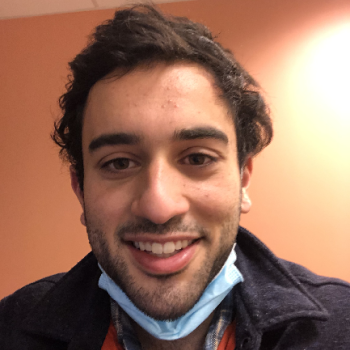Working MOUD during the Pandemic

This year, I have been working on a Medication for Opioid Use Disorder (MOUD) team at the Stephen Klein Wellness Center, a Federally Qualified Health Center in North Philly. Because our program is centered on harm reduction, our clients define goals for themselves. A goal can be any positive change a participant would like to see in their life, such as reducing fentanyl use, finding stable housing, or working towards sobriety. Because the words that we as staff use shapes how our patients and the public understand addiction, we try to use the most neutral language possible. For example, in our program there is no such thing as “dirty” or “clean” urine. Instead, there are urines which have substances and those which do not. Moreover, instead of using drug testing to kick people out of our program or to get them in trouble, we use it to provide better healthcare for our participants. We have been able to maintain many of these harm reduction core principles over the past year, however, the Coronavirus Pandemic has certainly created roadblocks and affected our program and participants.
If there has been one concept that has been drilled into my brain this year, it is “social distancing.” Of course social distancing is important to alleviate the spread of Covid-19, but I have also learned to be cognizant of the specific vulnerabilities that those struggling with addiction experience. Substance use understandably puts many of our patients at risk of overdose. When someone uses a substance around others, they can be monitored while using. If a risk of overdose is imminent, others can resuscitate the patient or alert emergency medical services. Even if someone uses their substance alone, but they are still in public, passerbyers can resuscitate the patient or alert emergency medical services if they appear to be overdosing. However, due to social distancing guidelines, people are now more likely both to use substances alone and in private spaces, where they are far less likely to be administered life saving treatment when necessary. Aside from the difficulties of distancing, the pandemic has undoubtedly been filled with grief. Many have lost loved ones, experienced heightened financial instability, and the social outlets which traditionally help people cope with life’s uncertainties have been reduced. With heightened stress and fewer outlets, recovery can feel even more difficult and inaccessible.
The pandemic has limited our program’s ability to support our clients in this psychosocially. Before the pandemic, each person in our program attended group therapy, which includes a counselor, a medical provider, and others also on their journey through recovery. People would share stories and discuss where they were at and how to move forward. This both fostered community through imbuing connectedness among members, while allowing our program to check in with each of our participants. These checkins ensured that program staff knew each participant's unique challenges, allowing for the development of patient centered care plans. Patient centered care inevitably varies, but it could center around finding stable work, obtaining the documentation necessary to qualify for various federal programs, or working towards regaining custody of children. The pandemic caused our program to shut down group therapy. Although program staff have worked hard to connect with our participants individually, we are happy to have been finally able to reintroduce the group back to our program in recent months. Hopefully this is the first of many positive steps toward serving our community at full capacity in the near future.
